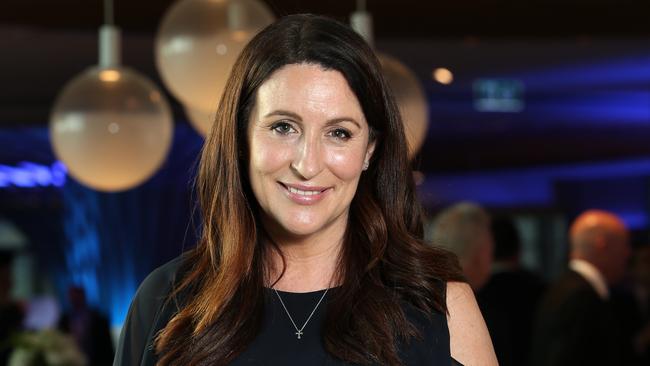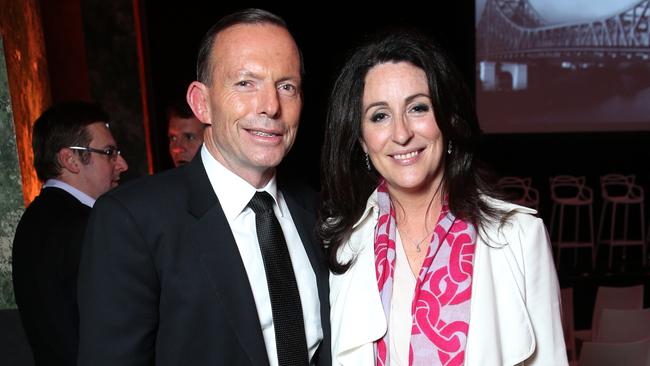Miranda Devine: Telling the truth has a price
Telling the truth has a price, controversial conservative and anti-same sex marriage columnist Miranda Devine says.

Telling the truth has a price, controversial conservative columnist Miranda Devine says.
“I personally have lost friends over it,” The Daily Telegraph columnist Devine tellspodcast Behind the Media, speaking about her decision to label supporters of deposed prime minister Tony Abbott “delcons”, or delusional conservatives.
Abbott was one friend she lost. Conservative columnist and colleague Andrew Bolt another.
“Andrew Bolt and I don’t talk any more,” Devine says, recounting how Bolt thought Devine was criticising him personally in the delcon column.
Devine says she wasn’t, instead targeting writers for the Quadrant and Spectator magazines.
“He has a glass jaw, that is the bottom line. If you are out there every other week saying the government is finished, Turnbull is finished, you have to back it up, and that was all I asked him on air that day.”
Devine is referring to their on-air stoush on Sydney radio station 2GB in February, when Bolt threatened to hang up. He remained on the program, but off air “we really have barely talked since and that’s a pity; it’s unfortunate when politics becomes personal in our media friendships”.
Devine had already lost her friendship with Abbott, whom she had known for 25 years, since he worked for her father, Frank Devine, a former editor of The Australian.
“We talk when we see each other and it’s very cordial. Well, it’s relatively cordial,” she says, adding that she still likes and admires him.
“I guess I had this mistaken idea that as a columnist I should be writing what I think is the truth and I have done that rather than help him run his insurgency, which I don’t think is my role.”

Devine is charismatic and fun in person, at odds with the angry and ruthless print persona. Which is the real Miranda? “Well you know it is a performance, a column, obviously,” she reveals.
Her strategy to deal with online haters is to block them and focus on the support. “It is not like my ideas or opinions are fringe or weird. They might be in our industry, but they are actually very mainstream,” she says.
But the same-sex marriage debate supercharged the atmosphere and Devine was one of the few people in the media to advocate a no vote. “I was personally insulted by the idea that anyone voting no was a homophobe or a bigot.”
She says a yes vote was what Australians voted for resoundingly, but she wants to protect the 40 per cent of no voters from being disenfranchised. “You would hope from this that we could actually strengthen marriage, you can turn this into a positive, marriage is a pretty battered old institution.”
Surprisingly, Devine started out working in the textile division of the CSIRO while completing a science degree majoring in mathematics and computer science. “Both parents had been journalists and both very much tried to talk me out of it. My mother I remember saying to me, “Journalism makes women very hard.”
Was her mum right? “Yeah, I guess so. You can’t tell how different you would have been if you hadn’t gone into journalism. It certainly builds callouses, especially when you are writing columns and polarising people.”
This came in handy in the 2000s, when Devine jumped ship from News Limited (publisher of The Australian) to Fairfax to be its star conservative columnist on The Sydney Morning Herald and Sun-Herald. She got on well with many but not everybody.
“There was a lot of hostility from the nomenclature at the Herald who thought my hiring was like the barbarians at the gate because I was a conservative.”
A small group of men who attempted to control content of the newspaper outside the power of the editor reacted in a hostile manner.
“They hated me being there, so did all sorts of things like sending me flash messages on the cyber system on deadline and it interrupted your concentration.”
But she was not bullied, she wants to make clear. “I think to be bullied you have to feel bullied and I didn’t feel bullied. But they certainly tried to.”



To join the conversation, please log in. Don't have an account? Register
Join the conversation, you are commenting as Logout